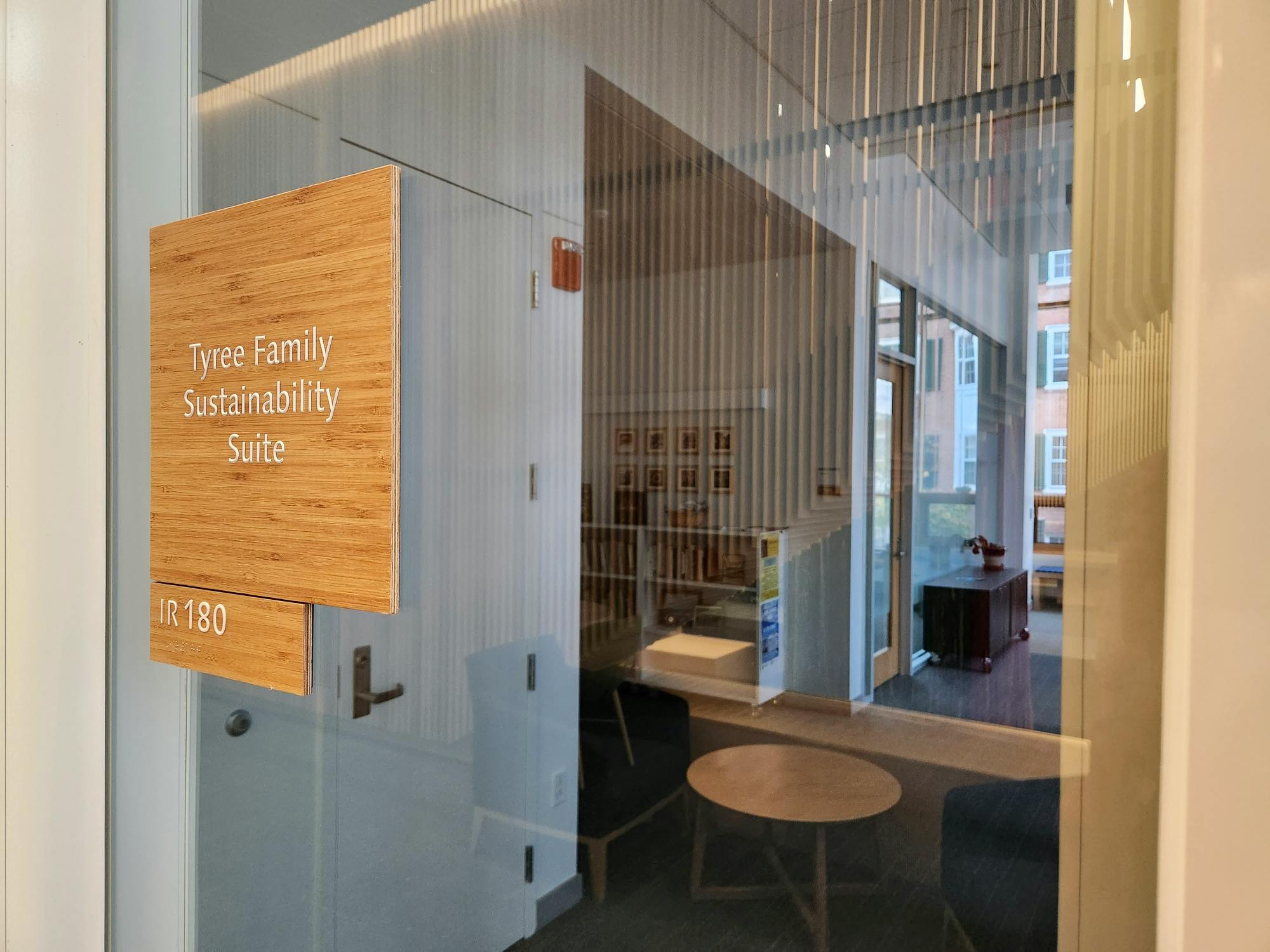The College’s Transportation Services department, in collaboration with the Office of Sustainability and the Department of Safety and Security, has created several initiatives to increase electric vehicle usage on campus.
According to Transportation Services director Patrick O’Neill, the College established “MobiliD”, a service launched on Oct. 2 that provides mobility rides in fully electric Ford Transit vans for students with disabilities. O’Neill added that there are plans to start “Solar Fleet Energy,” a three year pilot program for an EV, solar panel-based charging system, by the end of the fall term. Additionally, O’Neill noted that the Department of Safety and Security has plans to convert part of their vehicle fleet to be fully electric.
“This has been a real point of pride for transportation,” O’Neill said. “That we’ve been able to really kick this off and accomplish this much in essentially a year and a half.”
O’Neill said Transportation Services has installed 10 public charging stations on campus in the past 18 months, adding that six stations were placed in the Anderson parking garage, two in the Dana Lot near McLaughlin Cluster and another two in the Thompson Lot.
O’Neill added that there are currently no “firm” plans to install more charging station installations. However, he said that additional ports could “certainly” be added in the future, if needed.
According to O’Neill, port utilization at the College currently stands at 5.81%. There is expected to be an “increased utilization” in the next report as a result of the College’s new MobiliD shuttles, which were not recorded in the last survey, O’Neill explained.
“We’re actually utilizing the ChargePoint stations overnight for those full EV [Ford] Transits,” he said. “So we know those are going to be plugged in fairly consistently.”
Director of Sustainability Rosi Kerr ’98 added that challenges remain in trying to shift the College towards usage of more EVs. While improvements to charging time, vehicle range and the number of local charging stations will make EVs “better,” Kerr said that “user perception” remains an issue on campus.
“From a user perspective there’s not yet perfect infrastructure to support electric cars. [There’s] still range anxiety,” she said. “I think it will take having really good distance charging infrastructure to make sure that people here feel like they could buy an EV and go on a road trip to Boston and have it be really easy.”
O’Neill said that Transportation Services has been involved with the College’s “Our Green Future” initiative to advance sustainability goals throughout campus. As part of the program, Transportation Services had recently partnered with the “town of Hanover, the city of Lebanon and Dartmouth Hitchcock Medical Center” on improvements to the Advance Transit bus system in order to incentivize usage of campus transportation over personal vehicles.
“It’s all fairly new,” he said. “I think a year from now we’ll be able to look back and say, how can we expand on this to make further improvements?”
Kerr said that the Office of Sustainability had been working closely with Transportation Services on the planning process for Our Green Future.
“Their ideas are being incorporated,” she said. “When Transportation Services has specific topics that relate to sustainability, they often reach out — if we have things that come up that are related to Transportation Services, then we reach out.”
Kerr said that the cost of electric vehicles also continued to be a challenge, noting that at Dartmouth among “faculty and staff, the people that own EVs tend to be higher income than the people that don't.”
Engineering professor Vikrant Vaze, who has conducted extensive research into sustainable transportation systems, added that while installing chargers is “a good thing,” personal electric vehicles may not be the “most equitable” path forward.
A more “positive direction,” would be “shared mobility options” in which individuals have access to public electric vehicles, Vaze said.
“I think [electric vehicles] are challenging right now [because of] the costs involved,” he said. “You can’t just ask a lay person to just put in the $50,000 or $100,000 and then buy a new car. There has to be other ways of incentivizing this.”
Vaze added that he is currently involved with several research projects focused on improving electric transportation systems both in the Upper Valley and beyond, including one project focused on creating networks for micro-mobility vehicles through e-bikes and e-scooters, and another project focusing on using electric vehicles to store and manage electric loads.
“It’s very exciting,” Vaze said. “This is happening here and now.”




